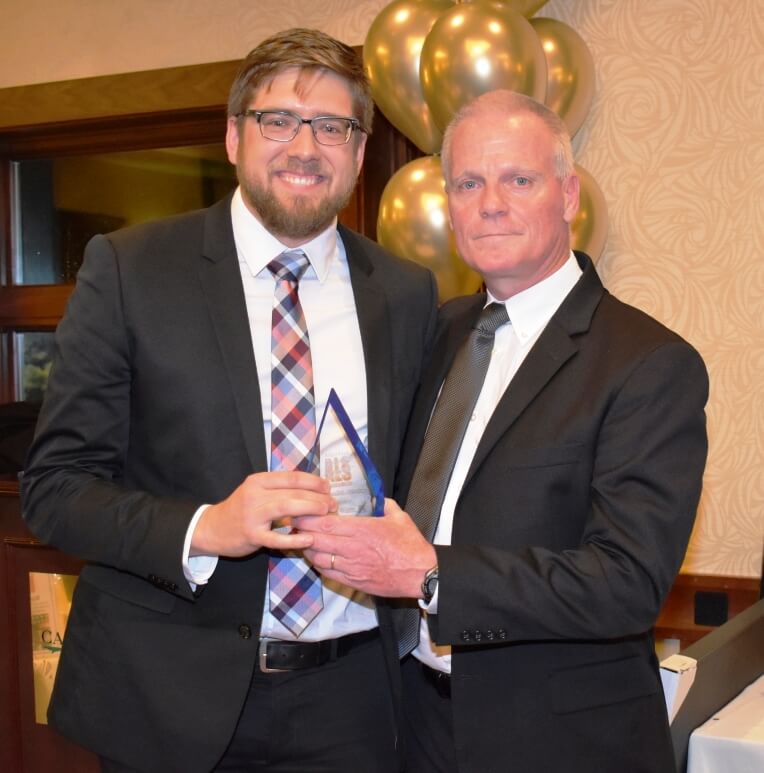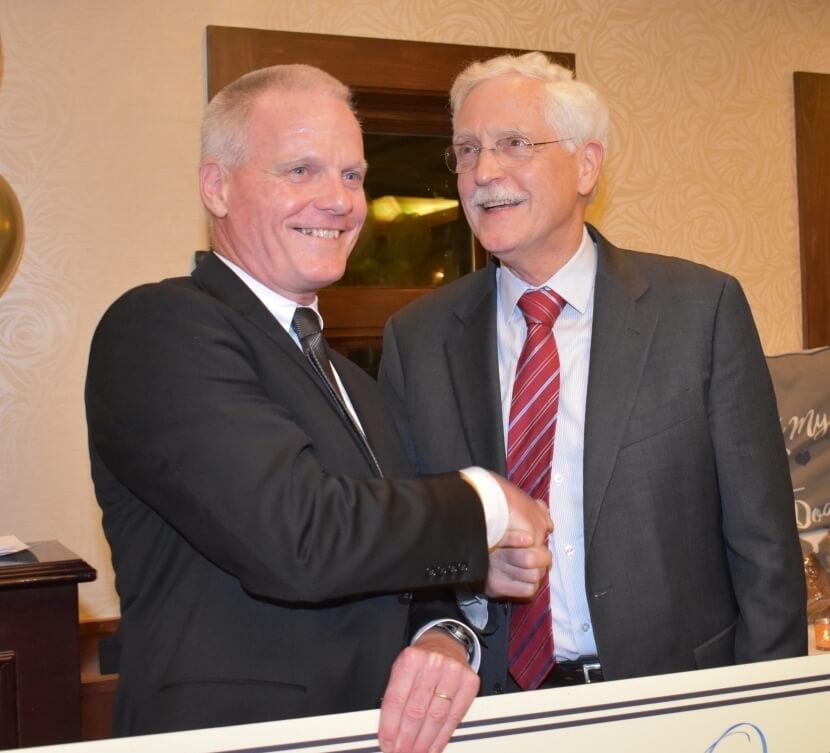Robert Brown Jr. and Jonathan Watts honored by Angel Fund for ALS
Date Posted: November 01, 2018 |
|
|
Jonathan Watts, PhD, and Rich Kennedy, president of the Angel Fund |
|
 |
|
|
Robert Brown Jr., DPhil, MD, and Rich Kennedy, president of the Angel Fund |
Robert H. Brown Jr., DPhil, MD, and Jonathan K. Watts, PhD, were recognized at the annual Angel Fund for ALS Gala on Oct. 27.
Dr. Brown, the Leo P. and Theresa M. LaChance Chair in Medical Research, professor of neurology and director of the Program in Neurotherapeutics, received a $1 million pledge from the Angel Fund, a nonprofit charity dedicated to supporting Brown’s research.
His lab is working to develop a therapy to silence genes that promote amyotrophic lateral sclerosis (ALS.) Promising new research from Brown and Christian Mueller, PhD, associate professor of pediatrics, was published Oct. 31, showing evidence that a therapy using synthetic microRNAs may safely treat patients with ALS. It appeared in the journal Science Translational Medicine. The study shows that a gene therapy delivered to motor neurons via a viral vector was able to silence SOD1 protein, mutations of which are linked to ALS, without causing any adverse effects.
Dr. Watts, PhD, associate professor of RNA therapeutics, was recognized for his work related to gene silencing. Specifically, the Watts lab is developing new approaches in the medicinal chemistry of several classes of oligonucleotides, along with novel tools for sequencing and synthetic biology.
ALS is a progressive, neurodegenerative disorder affecting the motor neurons in the central nervous system. The cause of most cases of ALS is not known. Approximately 10 percent of cases are inherited. Though investigators at UMMS and elsewhere have identified several genes shown to cause inherited or familial ALS, almost 50 percent of these cases have an unknown genetic cause. There are no significant treatments for the disease.
The Angel Fund is a dedicated to supporting ALS research at the UMMS Cecil B. Day Laboratory for Neuromuscular Research, internationally recognized for its groundbreaking work in the fight against this devastating illness. The lab is under the direction of Brown.
The nonprofit accomplishes its mission through fundraising events and campaigns, acting as a conduit to the Day Lab for funds raised by associated events, and through public awareness.
Related stories on UMass Chan News:
UMass Chan Medical School scientists safely deliver RNAi-based gene therapy for ALS in animal model
New gene editing approach for alpha-1 antitrypsin deficiency shows promise in UMMS study
Five-year, $11 million grant to fund new approaches to gene therapy
Substantial progress being made in ALS research at UMMS